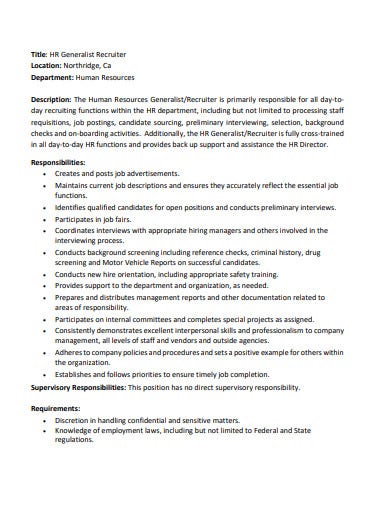
There are several important skills required by crisis managers. Leaders who are able to recognize and manage crises before they escalate can be a great asset. The effects of a slow-moving crisis may not be obvious until much later. Effective leadership styles practice early recognition. They pay attention to the impact of world events on their company, stay abreast about changing customer attitudes and work closely with crisis managers in order to quickly resolve the crisis. A competent crisis manager can help companies deal with a crisis, and keep normal operations going.
Priorities of crisis managers
Clarity and clarity should be the goal of crisis managers. The team should be comprised of people who are calm and can make clear decisions quickly. The team should also include detail-oriented and process-oriented individuals. A clear chain of command is essential. Also, the team should be trained properly to accomplish its assigned tasks. If there is a crisis, the team needs to be restructured in accordance with the situation.

These are the characteristics of crisis management professionals
In order to become a successful crisis management specialist, you should have the right combination of skill and experience. Professionals in this field should have a lot of experience and be highly skilled. They also need to be competent at communicating and gathering input. They should have active listening skills. This person must be able handle stress and chaos while remaining calm and focused. Additionally, they must be able interact with people in different departments.
Crisis managers employ these techniques
A crisis manager can employ many strategies to handle a critical situation. It takes planning and preparation to manage crisis situations. The top crisis managers use techniques that are based on resilience. It is the ability of a person to quickly recover from a difficult situation or the vulnerability to an unexpected event. Top managers have excellent memory and are able to make quick decisions, which helps them respond more quickly and accurately. In addition, they embrace vulnerability, which allows them to prepare for a crisis before it occurs.
The impact of a crisis on an organisation
The Impact of Crisis On an Organization examines how a crisis can affect a business and what can be done to prevent or minimize damage. This book examines the factors that affect the value of an organization and the impact that a crisis can have on its viability and reputation. All commercial companies operate in a digital age. Trust is low and high expectations are placed on good governance. Complex communication is required between companies and stakeholders. It is possible to quickly resolve issues when traditional target audiences are broken up into social groups.

Skills needed by crisis managers
Communication skills are essential for a good crisis manager. These skills will be crucial in managing any crisis, however large or small. The manager must be able communicate effectively and clearly to solve the problem as quickly and as smoothly as possible. These skills also require the manager to remain calm, make decisions quickly, and delegate tasks. These skills combine to increase the likelihood of crisis managers achieving a positive outcome.
FAQ
What are management concepts, you ask?
Management Concepts are the principles and practices managers use to manage people and resources. They cover topics such as job descriptions and performance evaluations, human resource policies, training programs, employee motivation, compens systems, organizational structure, among others.
What's the difference between leadership & management?
Leadership is about inspiring others. Management is about controlling others.
Leaders inspire others, managers direct them.
Leaders inspire people to achieve success. Managers keep their workers focused.
A leader develops people; a manager manages people.
How to effectively manage employees
Managing employees effectively means ensuring that they are happy and productive.
This includes setting clear expectations for their behavior and tracking their performance.
Managers must be clear about their goals and those of their teams in order to succeed.
They need to communicate clearly and openly with staff members. They must communicate clearly with staff members.
They should also keep records of all activities within their team. These include:
-
What was accomplished?
-
How much work were you able to accomplish?
-
Who did it and why?
-
How did it get done?
-
Why?
This information can be used for monitoring performance and evaluating results.
What is Kaizen?
Kaizen is a Japanese term which means "continuous improvement." This philosophy encourages employees to continually look for ways to improve the work environment.
Kaizen is founded on the belief of everyone being able to do their job well.
What is Six Sigma?
It's an approach to quality improvement that emphasizes customer service and continuous learning. This is an approach to quality improvement that uses statistical techniques to eliminate defects.
Motorola's 1986 efforts to improve manufacturing process efficiency led to the creation of Six Sigma.
This idea quickly spread throughout the industry. Today, many organizations use six sigma methods for product design, production and delivery.
Statistics
- This field is expected to grow about 7% by 2028, a bit faster than the national average for job growth. (wgu.edu)
- Hire the top business lawyers and save up to 60% on legal fees (upcounsel.com)
- The average salary for financial advisors in 2021 is around $60,000 per year, with the top 10% of the profession making more than $111,000 per year. (wgu.edu)
- The profession is expected to grow 7% by 2028, a bit faster than the national average. (wgu.edu)
- Your choice in Step 5 may very likely be the same or similar to the alternative you placed at the top of your list at the end of Step 4. (umassd.edu)
External Links
How To
How can I obtain my Six Sigma license
Six Sigma is an effective quality management tool that can improve processes and increase productivity. It's a methodology that helps companies achieve consistent results from their operations. The name "Sigmas" comes from the Greek words "sigmas", meaning "six". This process was developed at Motorola in 1986. Motorola realized that standardizing manufacturing processes was necessary to make products more efficient and less expensive. Because of the number of people involved in the work, they had problems maintaining consistency. They used statistical tools such as Pareto analysis, control charts, and Pareto analysis to resolve the problem. Then, they would apply these techniques in every area of the operation. So, after applying this technique, they would be able to make changes where there was room for improvement. To get Six Sigma certified, there are three key steps. Finding out if the certification is available for you is the first step. You will need classes to pass before you can begin taking tests. Once you've passed those classes, you'll start taking the tests. You'll need to go back and review all the information you received in class. You'll then be prepared to take the exam. If you pass, you'll get certified. And finally, you'll be able to add your certifications to your resume.